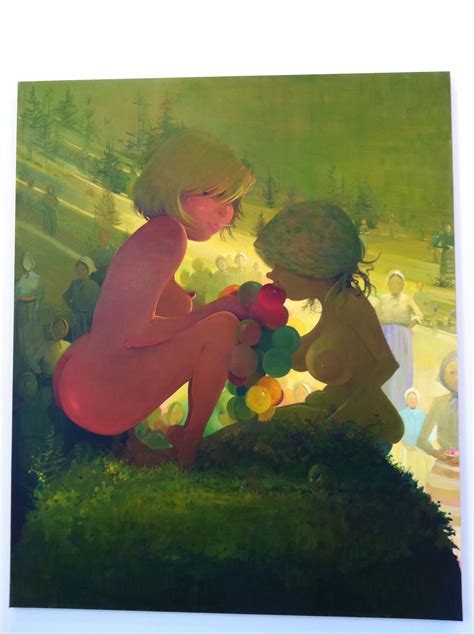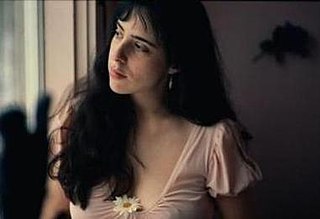A Quote by Lisa Yuskavage
It's easy to attack an artist as misogynist, but that's really such a facile epithet. And if an artist is constantly worrying about how others will judge a work, it can end up being a block to investigating certain areas of human nature or certain truths about sexuality.
Related Quotes
For instance, I may bring a certain feminist perspective to my songwriting, because that's how I see life. I'm interested in art, poetry, and music. As that kind of artist, I can do anything. I can say anything. It's about self-expression. It knows no package - there's no such thing. That's what being an artist is.
Why was the painting made? What ideas of the artist can we sense? Can the personality and sensitivity of the artist be felt when studying the work? What is the artist telling us about his or her feelings about the subject? What response do I get from the message of the artist? Do I know the artist better because of the painting?
Just let the artist sign an empty canvas or a frame, with the inscription, 'I had such and such a concept in mind' for this work. The artist then need not bother with producing the work, and therefore need not be worried about being dis-satisfied. All he or she needs to do is to sell it to a collector. The collector will have the guarantee that the artist thought about the work, even if momentarily, and therefore be satisfied.
I am an artist, and I understand the pros and cons of being an artist, and the pressures of being an artist, and how much being an artist can be torture to people around you; you know, you friends and your family and how material you can be, and how it's hard to take criticism and all the things like that.
What art should be about,' they will say, 'is revealing exquisite and resonant truths about the human condition.' Well, to be honest - no, it shouldn’t. I mean, it can occasionally, if it wants to; but really, how many penetrating insights to human nature do you need in one lifetime? Two? Three? Once you’ve realised that no one else has a clue what they’re doing, either, and that love can be totally pointless, any further insights into human nature just start getting depressing really.
I don't need to control the mind of my viewer. Now this might sound contradictory because I want to make these installations set up an environment that will produce a certain kind of experience in the viewer, but beyond a certain point, I take hands off and leave it up to chance and personal experience. So maybe it's a marriage of control and no control we're talking about where the artist produces the artifact or the environment and then walks away from it, and the second half of the equation is the viewer and their personal history and how they feel about what they're experiencing.
The artist of the future will live the ordinary life of a human being, earning his living by some kind of labour. He will strive to give the fruit of that supreme spiritual force which passes through him to the greatest number of people, because this conveying of the feelings that have been born in him to the greatest number of people is his joy and his reward. The artist of the future will not even understand how it is possible for an artist, whose joy consists in the widest dissemination of his works, to give these works only in exchange for a certain payment.
In the end, I feel that one has to have a bit of neurosis to go on being an artist. A balanced human seldom produces art. It's that imbalance which impels us. I often think that all I want to do now is to avoid suicide, accidental or otherwise. Other than that, I think living on the edge is what drives my work and me beyond a certain point. The artist lives with anxiety. When you finally reach a plateau of achievement, there comes a new anxiety - the hunger to push on still further. That angst is what makes you go forward.
Every artist knows that there is no such thing as "freedom" in art. The first thing an artist does when he begins a new work is to lay down the barriers and limitations; he decides upon a certain composition, a certain key, a certain relation of creatures or objects to each other. He is never free, and the more splendid his imagination, the more intense his feeling, the farther he goes from general truth and general emotion.








































